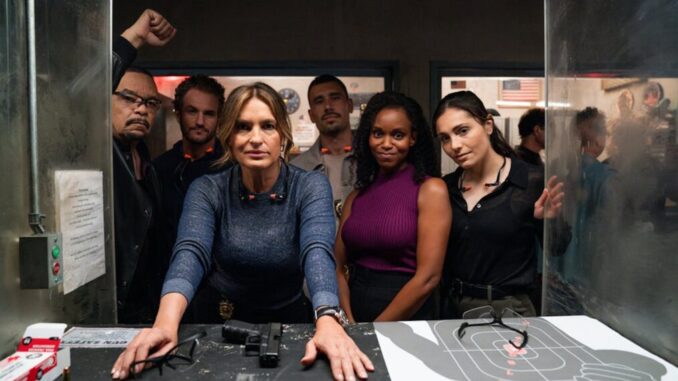
Inside the Latest Season of Law & Order SVU: What Viewers Missed
For a quarter-century, Law & Order: Special Victims Unit has been a steadfast presence on our screens, its iconic "dun-dun" serving as a familiar heartbeat in the often chaotic rhythm of network television. As the latest season unfolded, many viewers tuned in, drawn by the comfort of its procedural rhythm, the unwavering moral compass of Olivia Benson, and the catharsis of seeing justice, however imperfect, served. Yet, beneath the familiar format, the rapid-fire dialogue, and the weekly resolutions, the most recent season of SVU was a masterclass in quiet evolution, profound emotional depth, and nuanced societal commentary – elements that, in their subtlety, often slipped past the casual observer. What viewers missed was the deeper conversation the show was having, not just with its audience, but with itself.
Firstly, viewers often missed the immense burden of legacy and the show's quiet, yet profound, evolution. SVU isn't just "still on the air"; it's a series actively grappling with its own monumental history. The latest season subtly showcased how the cumulative weight of 25 years of trauma, both on its characters and the real-world issues it mirrors, has reshaped its very DNA. Olivia Benson, no longer just a detective or even a captain, has become an institutional memory, a living archive of pain and perseverance. What viewers might have dismissed as routine character beats were often profound reflections on secondary trauma, professional burnout, and the quiet dignity of simply enduring. The shift in the show's investigative approach, from purely forensic to increasingly psychological and socio-cultural, wasn't just a plot device; it was an acknowledgment of how the understanding of crime itself has evolved over two decades. The show, like an old, weathered oak, continued to grow new branches while its deep roots held firm, a balancing act far more intricate than the surface narrative suggested.
Secondly, and perhaps most significantly, many viewers overlooked the rich, unspoken emotional tapestry woven into the fabric of each episode. The rapid pacing of network television often prioritizes plot progression, but the latest season of SVU excelled in portraying the lingering echoes of trauma and the quiet resilience of its characters. It wasn't always in grand, tearful monologues, but in Benson's thousand-yard stare after a particularly harrowing case, the subtle tremor in Fin's voice, or the understated gestures of support between the squad. Viewers, accustomed to the external drama of the crime, might have missed the internal battles being fought, the quiet moments where the characters processed the relentless darkness they faced. The show, in its maturity, understood that some of the deepest emotional impact isn't telegraphed, but rather etched into the lines on a face, the way a character holds their breath, or the strategic use of silence. These were the true heartbeats of the season, revealing the humanity beneath the badge, a testament to the cumulative toll and the enduring strength required to champion the vulnerable.
Finally, and most crucially for a show often criticized for being formulaic, viewers frequently missed the profound and often uncomfortable societal mirror the latest season held up. SVU has always been a barometer of cultural anxieties, but its current iteration delves into the most challenging corners of contemporary society with a nuanced hand that belies its procedural format. The show tackled issues like digital consent in an ever-evolving online landscape, the complexities of restorative justice, the pervasive nature of online grooming, and the harrowing realities of the mental health crisis – not with simplistic answers, but with probing questions. It didn't just present victims and villains; it explored the gray areas, the systemic failures, and the often agonizing dilemmas faced by law enforcement and the justice system. What viewers might have seen as just another "case of the week" was often a meticulously researched and carefully crafted exploration of current events, inviting audiences to confront uncomfortable truths about their own world. The show asked its audience to look beyond the immediate crime and consider the broader societal forces at play, fostering a quiet, yet persistent, dialogue about justice, accountability, and the very definition of a victim in the 21st century.
The latest season of Law & Order: SVU, then, was far more than a simple continuation of a long-running series. It was a testament to enduring relevance, a masterclass in quiet evolution, and a profound exploration of the human cost of seeking justice. What viewers missed in the familiar "dun-dun" and the weekly resolutions was the subtle, yet powerful, conversation the show was having about its own legacy, the unyielding emotional toll on its heroes, and its unwavering commitment to reflecting the complex, often unsettling, realities of our world. To truly appreciate SVU's latest chapter was to look beyond the surface, to listen to the unspoken, and to acknowledge the enduring power of a show that, after all these years, continues to tell stories that demand to be heard.
